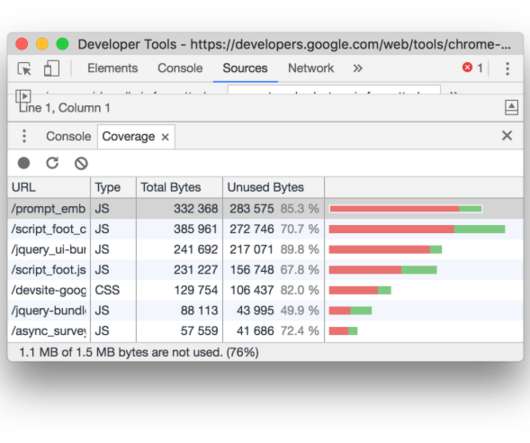Increase the Performance of your Site with Lazy-Loading and Code-Splitting
Jos
APRIL 6, 2018
Componentization has marked a before and after in web development. The main advantages that are usually mentioned is reusability and modularization. Well defined pieces that we can use to build our sites, like bricks of Legos. It turns out this component structure provides a great foundation to improve the performance of our sites. We are explicit about our dependencies, so we know what code we need to run to run a specific component.















Let's personalize your content